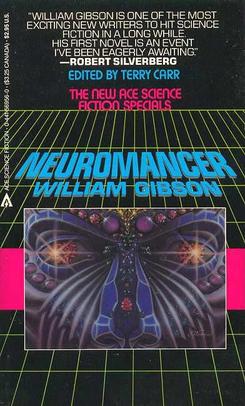
Neuromancer is a 1984 science fiction novel by American-Canadian writer William Gibson. Considered one of the earliest and best-known works in the cyberpunk genre, it is the only novel to win the Nebula Award, the Philip K. Dick Award, and the Hugo Award. It was Gibson's debut novel and the beginning of the Sprawl trilogy. Set in the future, the novel follows Henry Case, a washed-up hacker hired for one last job, which brings him in contact with a powerful artificial intelligence.
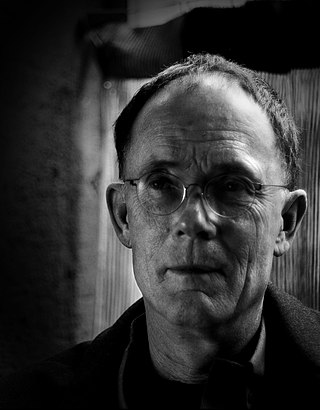
William Ford Gibson is an American-Canadian speculative fiction writer and essayist widely credited with pioneering the science fiction subgenre known as cyberpunk. Beginning his writing career in the late 1970s, his early works were noir, near-future stories that explored the effects of technology, cybernetics, and computer networks on humans, a "combination of lowlife and high tech"—and helped to create an iconography for the Information Age before the ubiquity of the Internet in the 1990s. Gibson coined the term "cyberspace" for "widespread, interconnected digital technology" in his short story "Burning Chrome" (1982), and later popularized the concept in his acclaimed debut novel Neuromancer (1984). These early works of Gibson's have been credited with "renovating" science fiction literature in the 1980s.

Pattern Recognition is a novel by science fiction writer William Gibson published in 2003. Set in August and September 2002, the story follows Cayce Pollard, a 32-year-old marketing consultant who has a psychological sensitivity to corporate symbols. The action takes place in London, Tokyo, and Moscow as Cayce judges the effectiveness of a proposed corporate symbol and is hired to seek the creators of film clips anonymously posted to the internet.

Count Zero is a science fiction novel by American-Canadian writer William Gibson, originally published in 1986. It presents a near future whose technologies include a network of supercomputers that created a "matrix" in "cyberspace", an accessible, virtual, three-dimensionally active "inner space", which, for Gibson—writing these decades earlier—was seen as being dominated by violent competition between small numbers of very rich individuals and multinational corporations. The novel is composed of a trio of plot lines that ultimately converge.

Charles David George "Charlie" Stross is a British writer of science fiction and fantasy. Stross specialises in hard science fiction and space opera. Between 1994 and 2004, he was also an active writer for the magazine Computer Shopper and was responsible for its monthly Linux column. He stopped writing for the magazine to devote more time to novels. However, he continues to publish freelance articles on the Internet.

Jack Womack is an American author of fiction and speculative fiction.
The Laundry Files is a series of novels by British writer Charles Stross. They mix the genres of Lovecraftian horror, spy thriller, science fiction, and workplace humour. Their main character for the first five novels is "Bob Howard", a one-time I.T. consultant turned occult field agent. Howard is recruited to work for the Q-Division of SOE, otherwise known as "the Laundry", the British government agency which deals with occult threats. "Magic" is described as being a branch of applied computation (mathematics), therefore computers and equations are just as useful, and perhaps more potent, than classic spellbooks, pentagrams, and sigils for the purpose of influencing ancient powers and opening gates to other dimensions. These occult struggles happen largely out of view of the public, as the Laundry seeks to keep the methods for contacting such powers under wraps. There are also elements of dry humour and satirisation of bureaucracy.
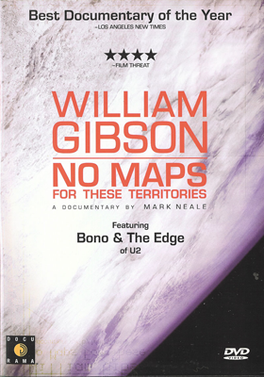
No Maps for These Territories is an independent documentary film made by Mark Neale focusing on the speculative fiction author William Gibson. It features appearances by Jack Womack, Bruce Sterling, Bono, and The Edge and was released by Docurama. The film had its world premiere at the Vancouver International Film Festival in October 2000.
"A Colder War" is an alternate history novelette by Charles Stross written c. 1997 and originally published in 2000. The story fuses the Cold War and the Cthulhu Mythos.

Charles Michael Lorre is an American television producer, writer, director, and composer. Called the "King of Sitcoms", Lorre has created/co-created and produced several sitcoms including Cybill (1995–1998), Dharma & Greg (1997–2002), Two and a Half Men (2003–2015), The Big Bang Theory (2007–2019), Mom (2013–2021), and Young Sheldon (2017–2024). He also served as an executive producer of Roseanne. Lorre won three Golden Globe Awards for his work on Roseanne, Cybill, and The Kominsky Method.
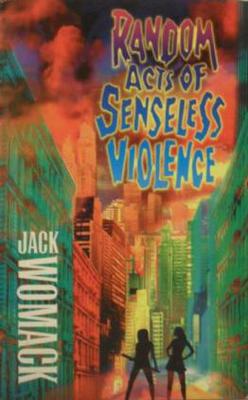
Random Acts of Senseless Violence is a dystopian and speculative fiction novel by Jack Womack.

Terraplane, published in 1988, is a Jack Womack science fiction novel. The Terraplane is a 1930s automobile, which plays a significant role in this novel. It is also a time machine from the corporate-dominated future of DryCo, a manipulative multinational corporation in "New" New York City, 2033 CE. In this future, climate change has resulted in rising sea levels, and would have inundated the original city if it had not been for the massive construction of a giant seawall, and New New York on higher ground. Altogether, Jack Womack set six novels in this future world, and its alternate history liaisons.

The works of William Gibson encompass literature, journalism, acting, recitation, and performance art. Primarily renowned as a novelist and short fiction writer in the cyberpunk milieu, Gibson invented the metaphor of cyberspace in "Burning Chrome" (1982) and emerged from obscurity in 1984 with the publication of his debut novel Neuromancer. Gibson's early short fiction is recognized as cyberpunk's finest work, effectively renovating the science fiction genre which had been hitherto considered widely insignificant.
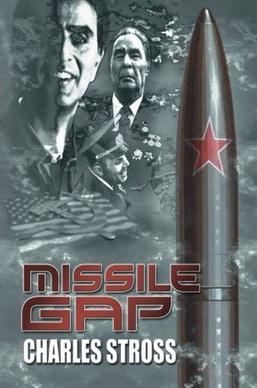
"Missile Gap" is a 2006 English language science fiction novella, originally published in the anthology One Million A.D. by British author Charles Stross. It won the Locus Award for best novella of 2006. The novella was republished in Stross's short-story collection Wireless in 2009.
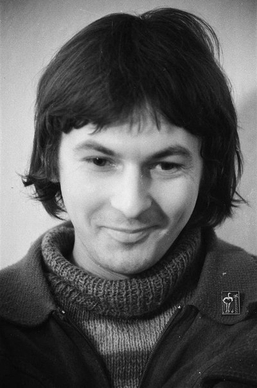
Mikhail Vasilyevich Naumenko, better known as Mike Naumenko was a Soviet rock musician, singer-songwriter and interpreter, leader of the band Zoopark.

Spook Country is a 2007 novel by speculative fiction author William Gibson. A political thriller set in contemporary North America, it followed on from the author's previous novel, Pattern Recognition (2003), and was succeeded in 2010 by Zero History, which featured much of the same core cast of characters. The plot comprises the intersecting tales of three protagonists: Hollis Henry, a musician-turned-journalist researching a story on locative art; Tito, a young Cuban-Chinese operative whose family is on occasion in the employ of a renegade ex-CIA agent; and Milgrim, a drug-addled translator held captive by Brown, a strangely authoritarian and secretive man. Themes explored include the ubiquity of locative technology, the eversion of cyberspace and the political climate of the United States in the aftermath of the September 11, 2001 attacks.

Rule 34 is a near-future science fiction novel by Charles Stross. It is a loose sequel to Halting State and was published on 5 July 2011 in the US and 7 July 2011 in the UK. The title is a reference to the Internet meme Rule 34, which states that "If it exists, there is porn of it. No exceptions." Rule 34 was nominated for the 2012 Arthur C. Clarke Award and the 2012 Locus Award for Best Science Fiction Novel.

The Bravest Man in the Universe is the twenty-seventh and final studio album by the American soul artist Bobby Womack. Released on June 12, 2012, it was his first studio album since 2000 and his first album of original material since 1994's Resurrection. It was produced by Damon Albarn and Richard Russell and released on the UK-based XL Recordings label. The Bravest Man in the Universe is the final album to be released in Womack's lifetime, as The Best Is Yet to Come will be released posthumously.
This is a list of books by British hard science fiction, Lovecraftian horror, and space opera author Charles Stross.

Archangel, also written as William Gibson Archangel or William Gibson's Archangel, is a five-issue limited series comic book that was created by William Gibson and Michael St. John Smith, written by William Gibson, illustrated by Butch Guice and story-edited by Michael Benedetto. It is Gibson's first comic book series, which is set in an alternative version of 2016 in which the Vice President of America travels back in time to 1945 to secure power.

















